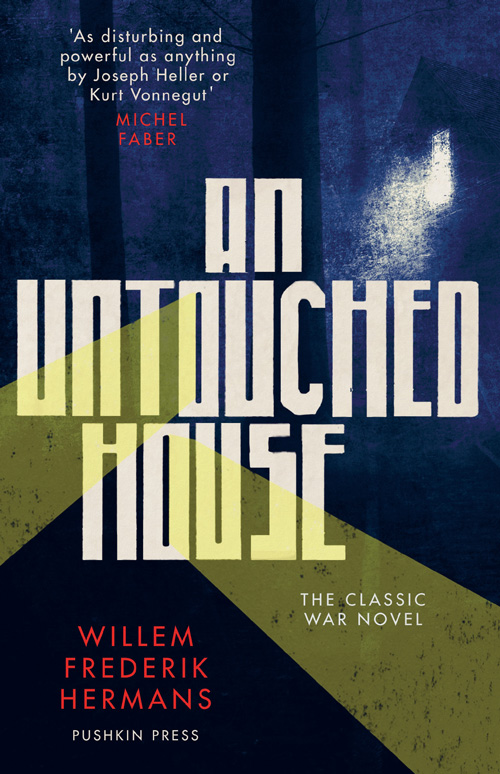Books
An Untouched House

An Untouched House by Willem Frederik Hermans, translation: David Colmer
(Pushkin Press, 2018)
Without a doubt, the Second World War is a central theme in the work of Willem Frederik Hermans. His is a remarkable, unflinching oeuvre driven by the dark world-view that civilization as we know it is only a thin veneer covering the monstrousness of human nature. In this peerless novella, Hermans offers a chilling dissection of the horror that ensues when the mask of decency is cast aside in the savagery of war.
Eastern Europe, 1944. A Dutch soldier fighting with the partisans – a motley band of volunteers from disparate countries – comes across an abandoned house and takes shelter there during a lull in the hostilities. This grand residence seems almost untouched by the war, and the partisan assumes the role of the owner, dressing in clothes he finds in the wardrobe and feasting on the food left in the kitchen. Before long, the conflict resumes. German forces recapture the town and come knocking at the door. They take the first-person protagonist to be the owner and coerce him into providing the soldiers with lodgings.
The German colonel maintains a stiff upper lip and a breezy disposition amid the wartime carnage: ‘Since joining the army […] I have shaved every day without fail at exactly half past six in the morning. […] That is what I understand by culture!’ The Dutch partisan seems to be on to a good thing until one day he is accosted by a man who turns out to be the rightful owner of the house. The man’s wife also makes an appearance. Terrified of being exposed as an impostor, the partisan kills them both in cold blood.
When the Germans lose control of the town once more, the victorious partisans go on the rampage and raid the house, slashing paintings and relieving themselves in vases. The German colonel is strung up with piano wire. As the partisans leave the ravaged house behind, the narrator – who has ditched his disguise and merged back into the group – lobs a hand grenade into the hallway, completing the devastation. Thus ends the tale of a house once untouched by war: ‘It was like it had been putting on an act the whole time and was only now showing itself as it, in reality, had always been: a hollow, draughty cavern, rancid and rotting at its core.’
The novella has appeared in many editions and has sparked intense critical debate ever since its publication. Readers have been fascinated and troubled in equal measure by the way in which Hermans gives this abandoned house a life of its own and pits civilization against brute force, truth against lies, and order against chaos. Through the decades, this profound and mesmerising work has lost none of its dark and disturbing power.
